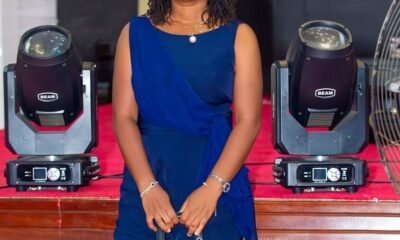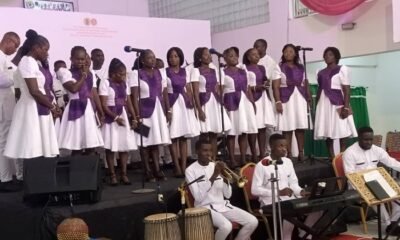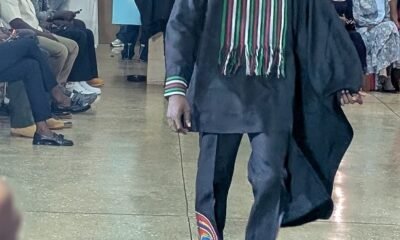Profile
Combing streets, ghettos for emotionally traumatised boys …the story of the ‘Woman King’ and Boy Child Supportive Care Foundation
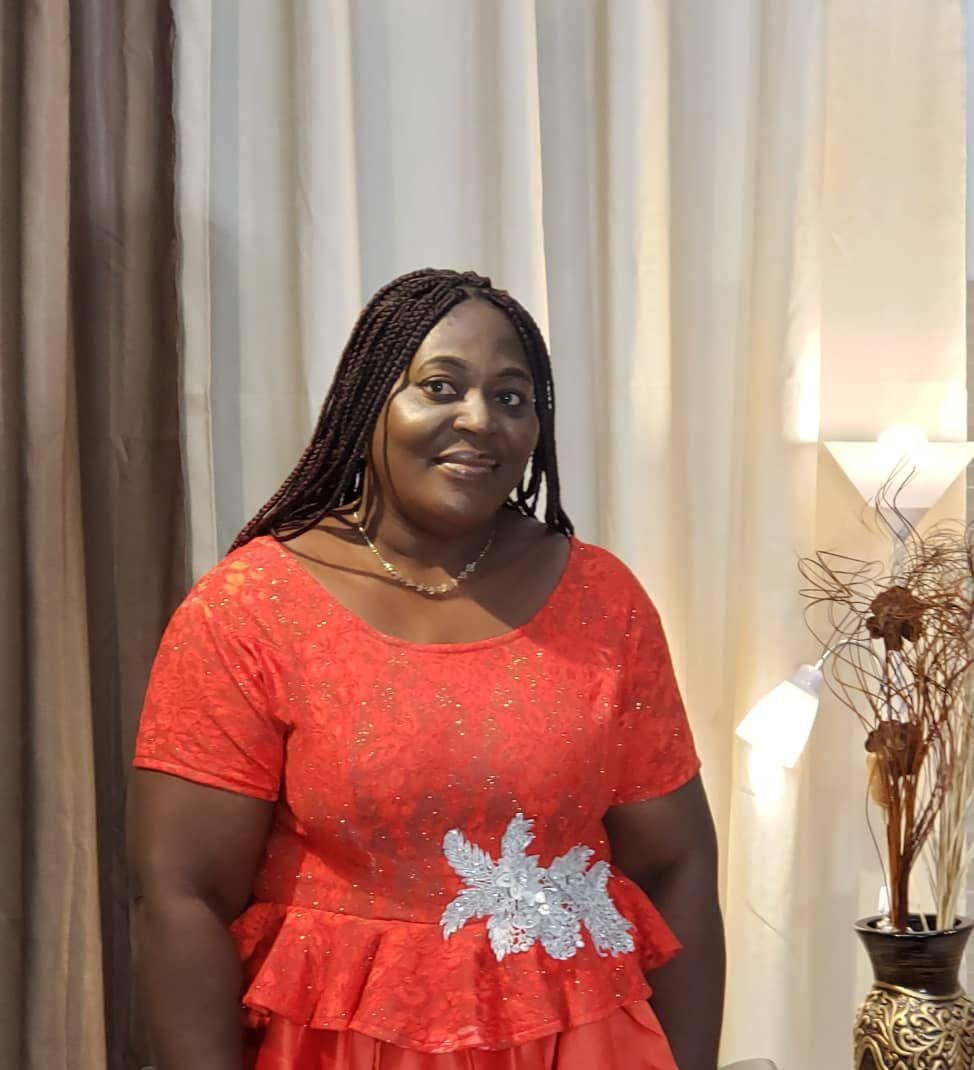
In a society where conversations about the safety and wellbeing of people have always tilted to the side of women and the girl child, one often wonder who cares about the state of the young boys at the same age as the girls.
Boys have been usually considered emotionally and physically stronger vessels, able to go through tough and difficult challenges without the support often enjoyed by girls who go through less or similar trials.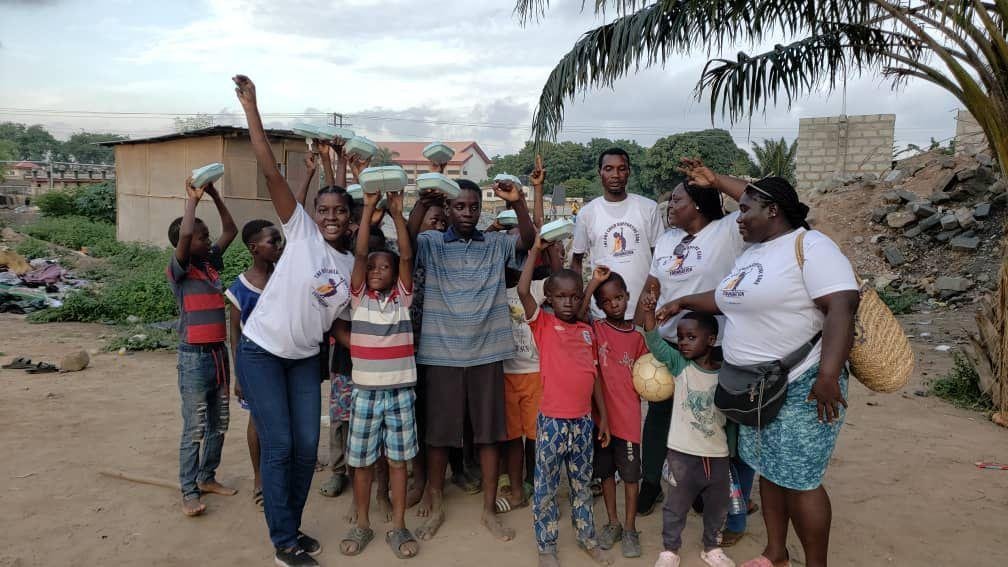
Some of these boys have grown up knowing of a popular Ghanaian parlance ‘barima nsu’, which is literally translated to ‘men don’t cry.’
So, sometimes people don’t realise that behind this show of strength and swagger, lies a soft, emotionally traumatised boy that fears losing his masculinity by bringing out the other part of him.
This was what led to the establishment of the Boy Child Supportive Care Foundation, a little over a year ago, to provide that comforting shoulder for boys to share their concerns.
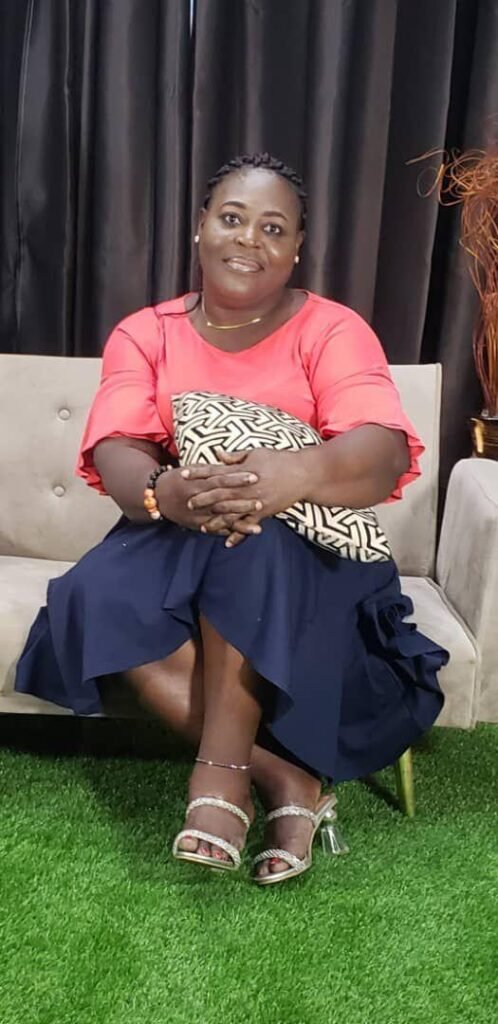
Even that thought to care for boys came from a woman, Edna Korama Yamoah, popularly known as ‘Woman King’ who stands for the plight of boys and men.
The story behind the Boy Child Supportive Care Foundation is quite fascinating, especially when both boys and men have failed to realise and accept their predicament.
But for the Woman King, boys and men must not see themselves in such struggles as a normal thing.
“You see, boys have been neglected for a long time. We always hear about the girl child. Everything in this society is about the girl child. We think the girls are vulnerable, but boys are more vulnerable.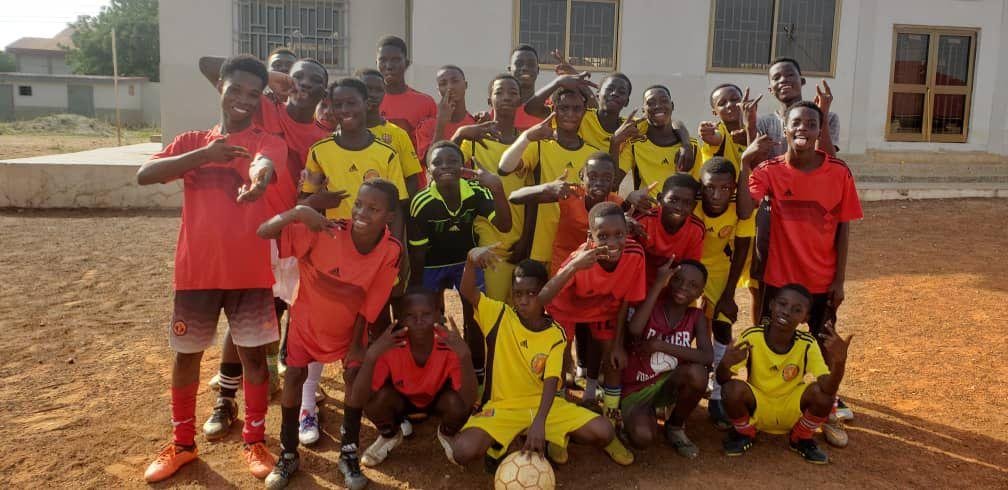
In fact, most boys are more vulnerable than the girls. Boys get so emotional but they hide it because we always know them to be men and not expected to cry,” She explained.
After establishing the foundation, a lot of such boys have been brought together, especially those that are going through emotional problems.
Within this short space of time, the foundation has managed to put about 16 boys in basic school, almost 200 in technical and vocation through scholarship, and has over 150 engaged in sports activities, specifically football and basketball.
Without support from organisations, the foundation has struggled to send these boys to Senior High School (SHS) due to financial challenges, although the SHS is free but without some needed logistics.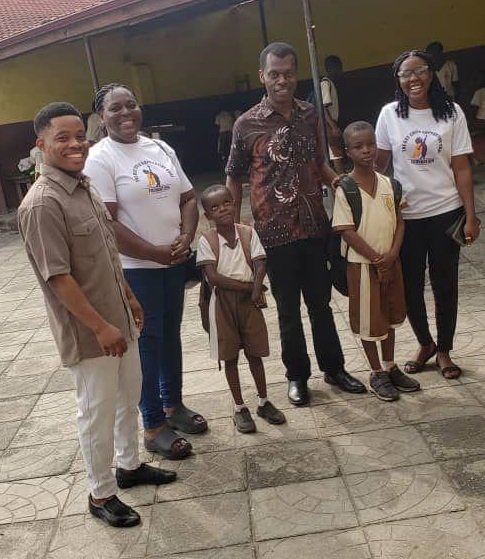
According to the Woman King, the work of the foundation requires occasional visits to schools where they talk about issues on mental health and wellbeing.
“We also do charity works. We also do feeding on the streets and ghettos.
“The foundation currently don’t have a hub to house them. That is even not a major concern now since most of them have places to sleep. It’s just that they are poor. They don’t have what to eat, they don’t have what to wear.”
“They are not necessarily street children. These are boys with their families aged between 10-21 years. They are with the families but we see clearly they are going wayward.
“So, we help them with counselling. We do one-on-one counselling. We do interactive counselling. We do that a lot in secondary schools, especially in five schools.
The foundation’s operations are not always smooth as expected because of their backgrounds.
“They are from poor homes. Some are very stubborn as well, and proud. Sometimes you want to help a boy child and he’s like, I’m comfortable where I am. I want quick money. I want to carry goods to get money.

But I have a way of facing them. So, I’m always in kick; every day, I’m in kick. You hardly see me in flashy clothing.
“I go to the gated houses where people cannot go, where the police won’t go. Me, I go there. I go to the ghettos to speak to them.
“I make them feel I’m not against them. Rather, I want to understand them, so they should also understand me.
“Sometimes I cry. Sometimes I just get out of my car and walk along the streets just to look at these boys, how they behave, and their mannerisms,” she narrated.
Woman King has currently written proposals to churches, organisations and philanthropists to find ways to fund these activities that she believes will help a lot of boys realise their dreams.
“I didn’t have any grant. I didn’t even have the idea of writing to do this because we were not even a year old. So we contacted a few people and they started adopting some of the cases.
“So we have people who have adopted the education project. We have only individuals who are taking care of individual boys. They pay their school fees and most of them are in the private schools. Because they want the boys to be in the private schools.
“But after a year, we are collaborating with this big school with the Ghana Atomic Energy Commission.
We are also endorsed by the Ministry of Arts and Culture. We have the endorsement because there is this upcoming project; Arts and Craft. We wanted to do it in the secondary schools, but we realised that Ghana Education Service may delay us,” she stated.
At the sports level, the foundation requires training and remuneration for their coaches in charge of their 14, 16 and 18 football teams.
Woman King is a mother of two girls and believes it is for a purpose that she did not give birth to a boy because her passion has led her to take care of so many of them.
“I feel so good and proud when I see something good coming from my boys. When I see them so happy, it makes me so happy, it makes me feel I am on top of the world.
“I feel good that I have made an impact in somebody’s life, because I see progress. All these boys are transformed.
“And at the end of the day, they all come saying thank you. So it makes me very proud and emotional.”
Womans King’s next agenda is to have a “Books and Stationary Support Festival coming up in the first week of January when schools reopen. We are doing this because I went to some schools, about two or three schools in some villages and the teachers appealed to me to bring them books.”
In this regard, the foundation is calling for support to support these needy school children.
It is the belief of Woman King that the foundation would one day gain international recognition for the good works it is rendering to society.
By Cecelia Yada Lagba
Profile
Edwina Anokye-Bempah Redefining Trust in Ghana’s Real Estate Landscape
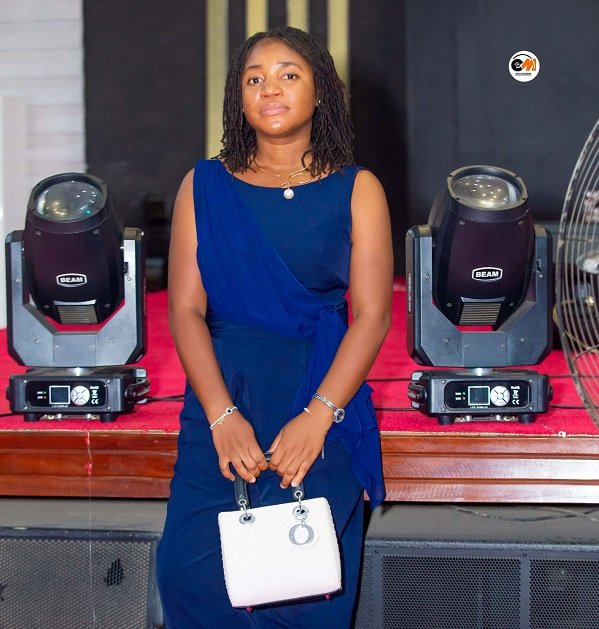
Every morning begins the same way for Edwina Anokye-Bempah, with quiet devotion. It is her grounding ritual, a moment of reflection and gratitude before she steps into the dynamic, often unpredictable world of real estate brokerage.
By the time she arrives at the office, she has already set the tone for her day. She reviews the previous day’s tasks, checks what was accomplished and what still needs attention, and then drafts a new to-do list. For her, success is rooted in deliberate planning, discipline, and the commitment to follow through.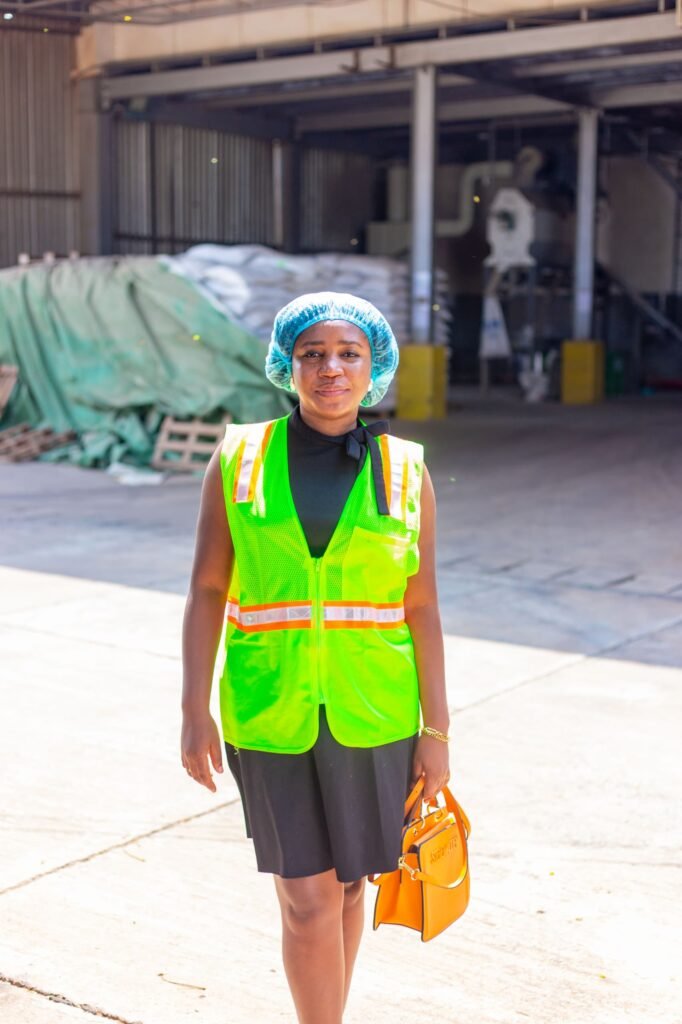
Today, Edwina stands out as one of Ghana’s promising real estate brokers, but she is also clear about the distinctions within her field. While many people casually use the term ‘realtor,’ she is quick to explain that only professionals registered with the National Association of Realtors can claim that title.
“Since I am not registered with the association, I am a real estate broker,” she says. It is a role she embraces wholeheartedly, facilitating transactions, connecting buyers and sellers, and ensuring clarity and integrity at every step.
Her journey into the industry took shape at MeQasa, an online platform dedicated solely to real estate. The platform exposed her to developers, agents, and the complexities of property transactions. She worked closely with developers and observed one recurring problem: clients often complained about agents who failed to respond, follow up, or provide accurate information.
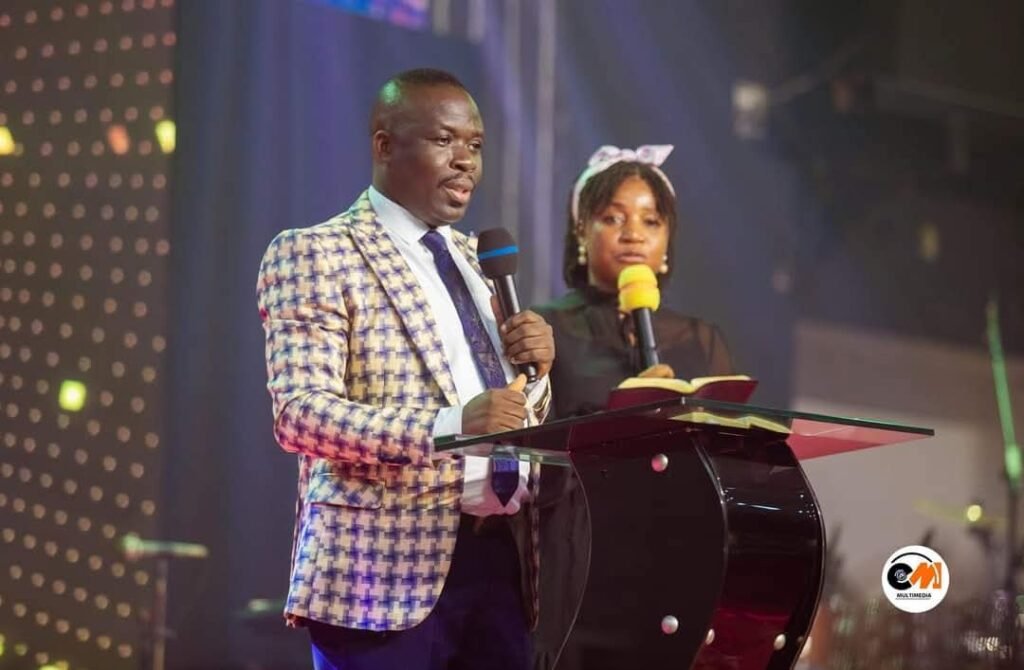
With her background in sales and marketing, Edwina felt naturally drawn to the field. It was an industry where she believed she could make a meaningful, positive impact. Real estate, she came to learn, is far more than brick and mortar. It is about helping people secure one of the most important investments of their lives. This understanding shapes every decision she makes.
One of the most challenging tasks in her work is qualifying clients.
“A serious buyer must be willing, ready and able,” she explains. When one of these three qualities is missing, the transaction is likely to stall or collapse entirely.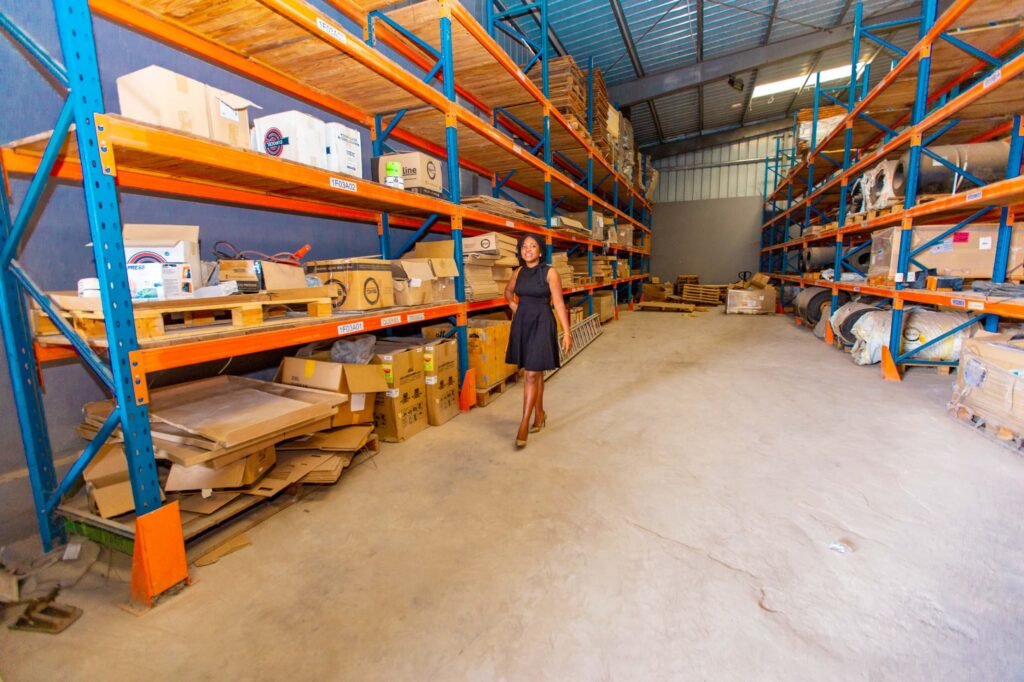
On the seller’s side, due diligence is equally critical. Ownership disputes, land fraud, and unclear documentation remain some of the biggest risks in Ghana’s real estate sector.
Edwina understands the weight of the responsibility she carries. “The money involved is huge. These are people’s lifetime savings. Most people buy one home or maybe two in their entire lives. You cannot afford to make a mistake.”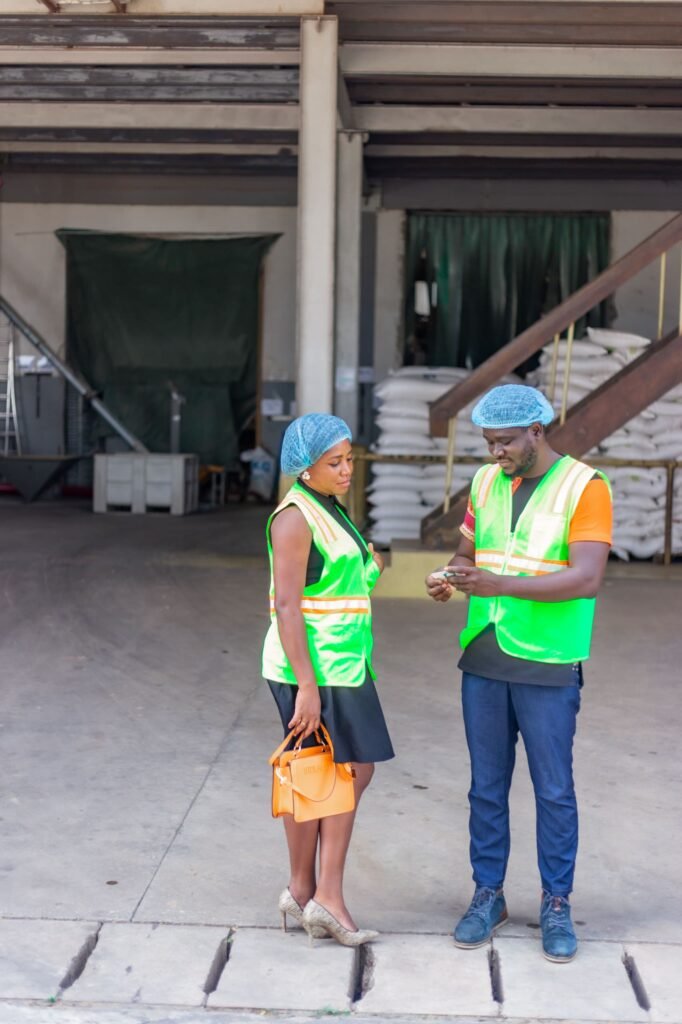
Working in what many describe as a male-dominated field has never intimidated her. With an MBA in Marketing and extensive experience in sales roles including a stint as an Account Manager in an advertising agency, she has grown comfortable handling clients, negotiating deals, and presenting herself with confidence.
“My gender has never discouraged me,” she says. “What matters is hard work and ensuring that the client’s needs were met.”
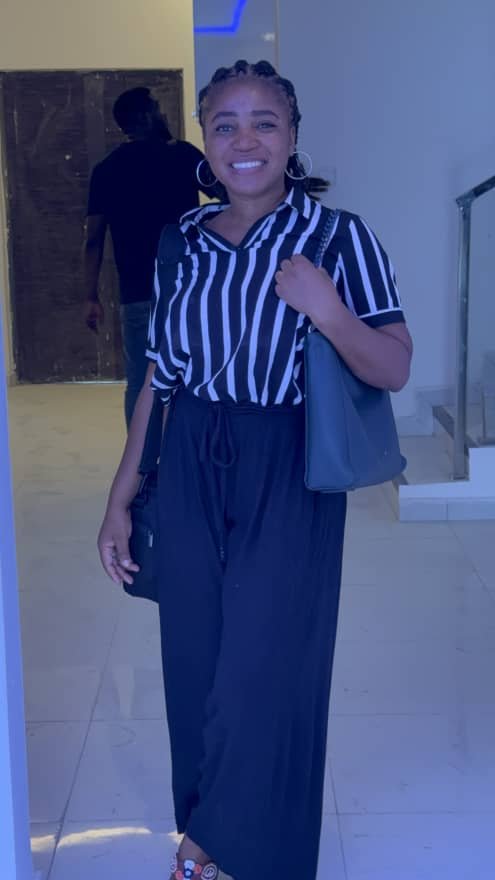
The only occasional challenge, she admits, was maintaining professional boundaries when some men attempt to be overly familiar. Her solution is simple: stay professional and do not over-familiarise yourself with clients.
Her educational journey started in Kumasi, followed by Yaa Asantewaa Girls’ Senior High School, where she studied Agricultural Science. She continued the same at the University of Ghana before pursuing her master’s degree. After university, she worked on her uncle’s poultry farm before moving into advertising. Later, her role at MeQasa finally opened the door to the career she had long been unknowingly preparing for.
Over the years, Edwina has built a reputation not only for competence but also for care. She recalls one client in particular, an older man relocating to Ghana with no family in the country. After helping him secure two homes, she became the closest person he could rely on. One evening at around 8 p.m., he called to say he felt unwell. Without hesitation, she drove to his home and rushed him to the hospital. Doctors later told her that any delay could have been fatal.
For Edwina, that moment affirmed that the job goes far beyond selling property. “It doesn’t end with the sale,” she says. “You have to look out for people.”
Her influence also extends to younger people observing her journey. She is known for her tenacity, her refusal to give up on clients or tasks, and her resilience in the face of challenges. Those who work around her learn to push forward regardless of setbacks.
“If a deal doesn’t go as expected, you don’t look back. You find a way.”
Beyond real estate, Edwina serves as an interpreter in her church, a role that dramatically boosted her confidence. What began with trembling legs has evolved into a boldness that reflects in her public speaking and client interactions. She credits her growth to God, her senior pastor, her mother, siblings, friends, and her dedicated team — “an amazing circle,” she calls them.
Today, she is also a partner in a showroom business dealing in vanity units, sanitary wares, and tiles, an extension of her real estate insight and experience.
For young people aspiring to join the industry, her advice is clear: “Learn the industry beyond selling. Understand transactions, build strong relationships, and always do your due diligence.”
For Edwina Anokye-Bempah, real estate is more than business; it is trust, service, and impact, one client at a time.
By Esinam Jemima Kuatsinu
Join our WhatsApp Channel now!
https://whatsapp.com/channel/0029VbBElzjInlqHhl1aTU27
Profile
How a Collapsed Dream Birthed Another: Daniel Debrah’s Music Journey

From the age of five, Daniel Nana Kwesi Kakra Debrah has lived a life surrounded by rhythm, harmony, and the quiet pulse of music. Growing up in a home where instruments filled corners and rehearsals were as normal as conversation, Daniel’s first teachers were not in formal classrooms—they were the sounds, movements, and discipline he absorbed from his father, a committed church musician.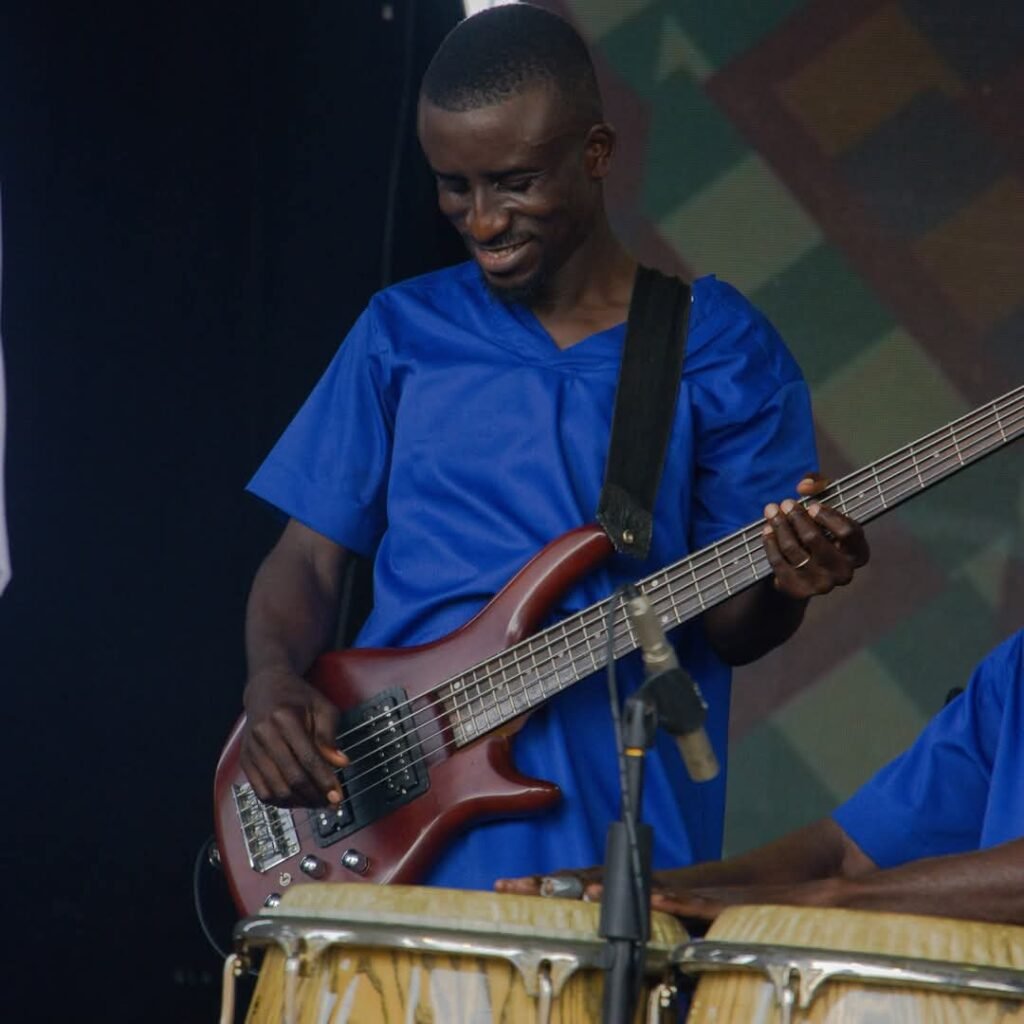
Ironically, music was not Daniel’s first dream. Like many young boys, he once hoped to become a professional footballer. But an injury from a school match left him unable to walk for three months, forcing him to retire that ambition. What seemed like a tragedy at the time became the turning point that aligned him with the path he was always meant to follow.
Daniel’s earliest musical expression began in church. As a boy in Sunday School, he eagerly ‘pounded’ the drums, quickly becoming known as the child who never missed an opportunity to play. Even in Senior High School (SHS), although many of his classmates were unaware of his talent, he continued practising quietly until completing school in 2005.
After SHS, Daniel joined a church music class with the intention of growing as a drummer, but one moment changed everything. Watching a bass guitarist perform stirred something in him. Drawn to the deep, steady tones of the bass, he persuaded a friend to teach him the basics. With no instrument of his own, Daniel practised at home using a broken guitar for more than eight months.
Then destiny intervened. The church’s lead bassist was suddenly suspended, and Daniel stepped in voluntarily during an evening service. That temporary voluntary act became permanent as he was asked by the then Music Director to fill in the gap. From that point, he embraced the bass guitar fully—a decision that defined the rest of his life.
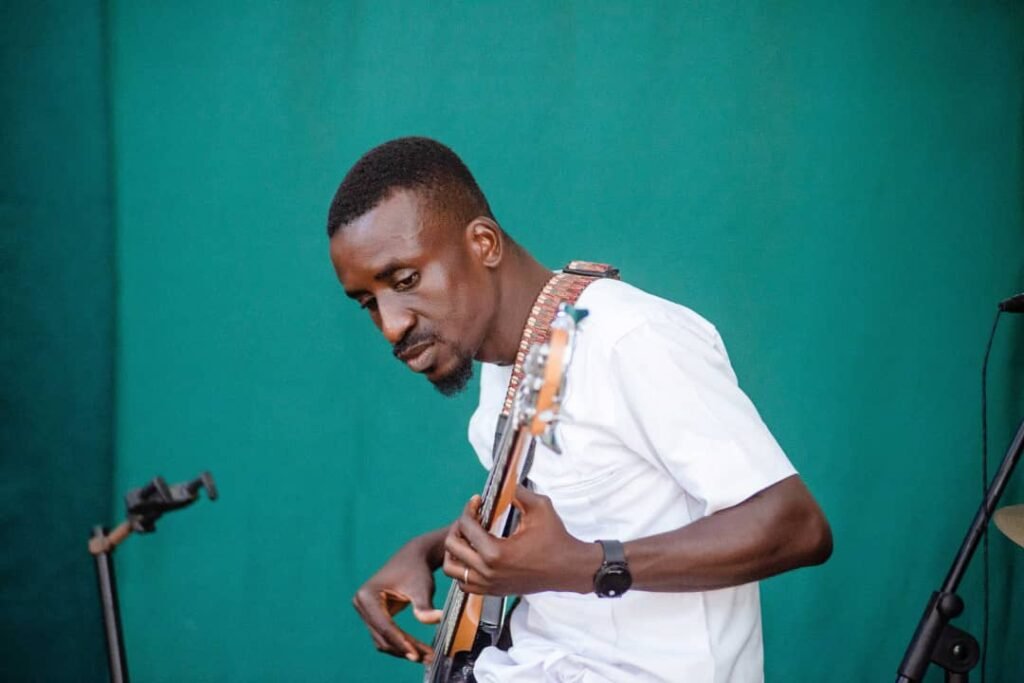
Around 2006, Daniel made a life-changing decision to take his craft seriously. He began practising for hours on end, sometimes up to eight hours a day, often without food, locked away from family and friends, perfecting techniques and expanding his creativity. While others assumed he was outdoors socialising, Daniel was indoors sharpening his gift.
His breakthrough came in 2007 when he performed in the TV3 Bands Alive competition. The exposure, applause, and feedback confirmed his dream: “music was not just a passion; it was his calling,” he said.
With time, Daniel moved confidently into the professional space. He performed at studio sessions, live concerts, weddings, church events, and high-profile national programmes. His talent, discipline, and reliability earned him a reputation that continues to attract respected gospel artistes.
Today, he works closely with Daughters of Glorious Jesus, Chris Apau, and Israel Ofori, who have been of immense help to his career ministry. He also collaborates with several ministries and offers support with musical arrangements, live performances, and studio recordings.
Beyond the stage, Daniel sees himself as a mentor. Many young musicians reach out to him, some visiting in person, others calling for guidance. Whether through hands-on training or virtual coaching, he is always ready to teach. For Daniel, music is not just technique; it is character, discipline, and values. He believes a musician must carry integrity both on and off stage.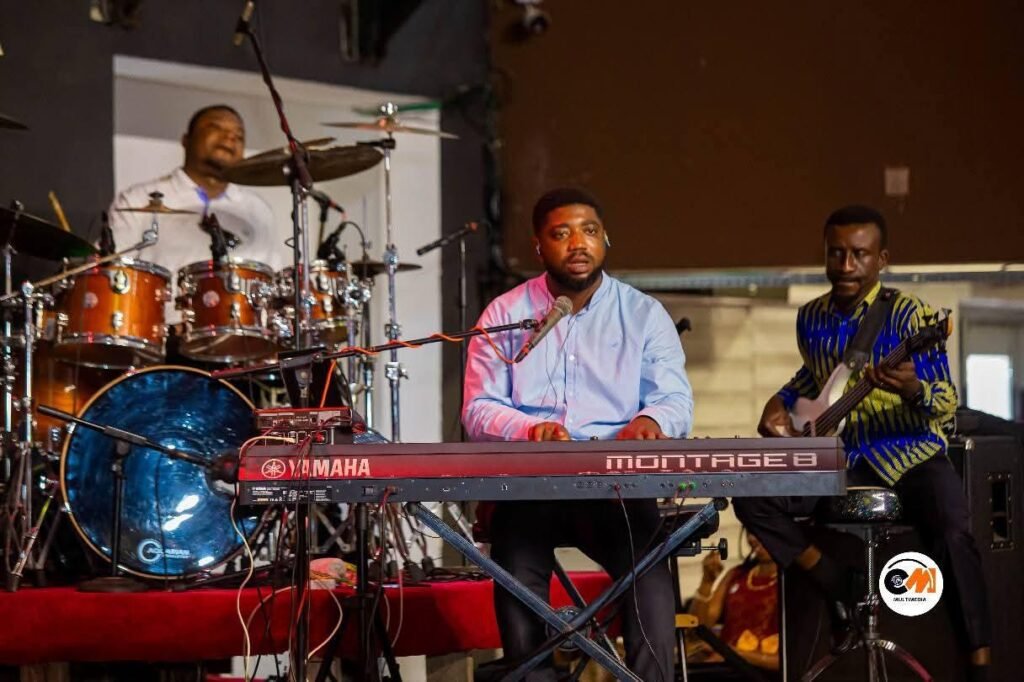
Like many musicians in Ghana, Daniel has faced challenges with delayed payments and broken agreements. These experiences have taught him to value professionalism. He now insists on part payment upfront and charges more for his services, a decision grounded in self-respect and fairness.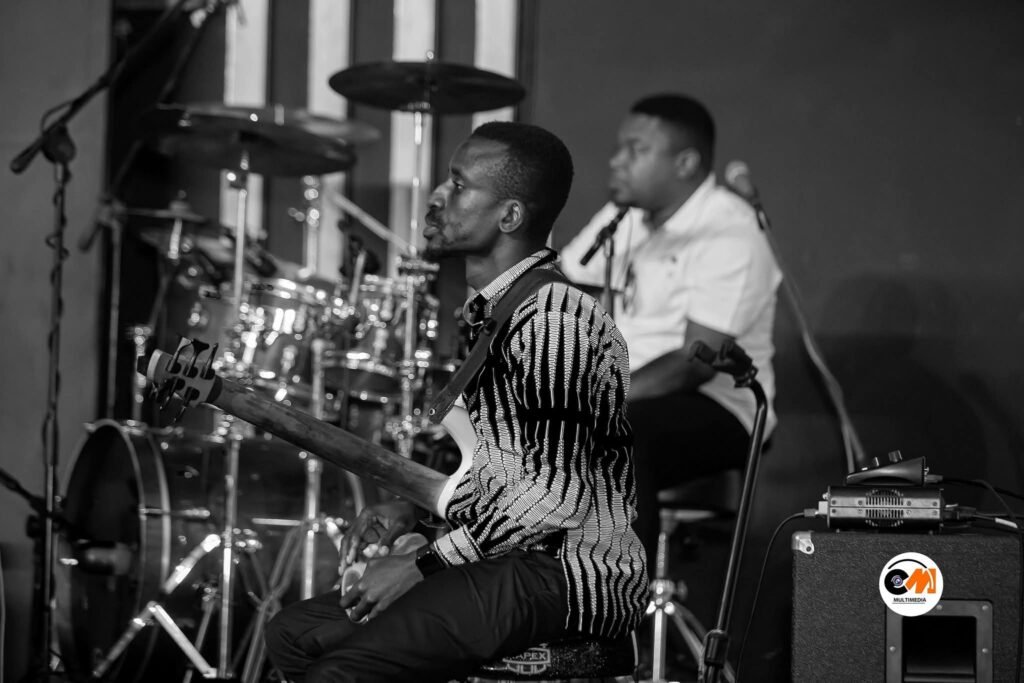
Daniel’s journey in music has been shaped by various individuals who have supported him at different stages of his career. He acknowledged Opoku Agyeman Sanaa, Kofi Ennin, Andrew Klu, Mr. Samuel Abbey, Mr. Samuel Sarpong Agyei, Paul Quartey, Mr. Nene Emmanuel, and Mr. Isaac Asiedu, saying that their belief in him continues to inspire his journey.
Daniel’s work is guided by his Christian faith. He sees music as ministry, not merely entertainment. Off stage, he is a devoted family man—a husband and father of two, a boy and a girl, who have also started playing musical instruments. During his leisure time, he listens to music, or plays football and action video games.
Through his acts of service and unwavering determination, Daniel continues to inspire others, proving that when passion meets integrity, ordinary men impact the lives of others.
By Esinam Jemima Kuatsinu

